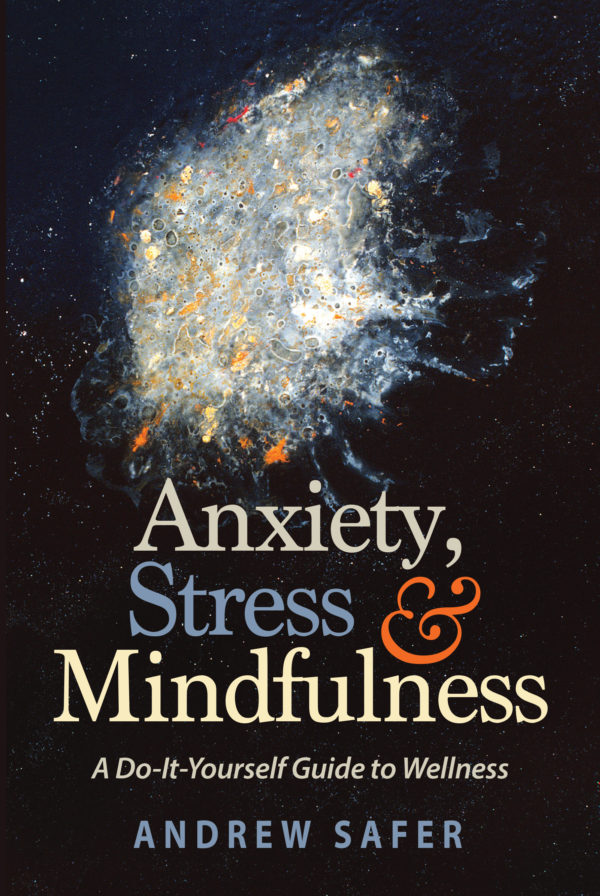Mindfulness for Anxiety and Stress
(c) Andrew Safer 2023

Whenever Becky* faces the unknown and the unplanned, it feels like the glue that normally holds her together is failing. She becomes anxious and restless.
Becky always seems to be worrying—Taxes: will I file on time? My nephew, who rides his bike through a neighbourhood I believe is unsafe. It seems like another health scare is always popping up. If the prices of gas and groceries keep going through the roof, how will we survive? How is climate change going to affect us here, in Newfoundland?
There is an amorphous background worry that is ever present. Even when something good happens—her partner gets a raise, eating her favourite dessert—she is anticipating the next curve ball.
Becky identifies something negative, it cycles through her discursive thoughts, and poof! it’s elaborated into worry—anxious thoughts about the stuff of life unraveling into an unknown and ominous future.
At the business consultancy where Bob works, everything is constantly changing. Deadlines move up on a whim. Out of the blue, project budgets are cut. Top clients who were once loyal won’t return his calls. Staff turnover is high. Frequent product updates have him always playing catch-up. Bob has been pretty easygoing in his work life until now, but these days he’s stressed to the max, constantly on edge, and anxiously waiting for the next shoe to drop.
Mindfulness training is well suited to help people like Becky and Bob, by orienting them to the present moment, and helping them develop attention, non-judgment, and awareness.
- First, there is a focus on grounding. As it is built into the meditation practice, this training is repeated often. When Becky and Bob start to feel off-balance psychologically, they have learned to ground themselves by bringing attention to feet on the floor.
- When they notice anxious feelings, they have learned to take that as a signal to be open and curious about what’s happening. Pausing is key. Rather than running away from these uncomfortable feelings, they have begun to acknowledge and even learn from them.
- They notice their thoughts. They have learned that whatever is occupying their heads comes and goes and is actually not fundamentally connected to Becky and Bob (!), so their distressing thoughts are not as authoritative and convincing as they used to be. They don’t take them as personally. Time and again, they return their attention to a stable anchor—breath or feet on the floor—which interrupts their tendency to spin off and get stuck in the thought world, which breeds catastrophizing webs of worry/anxiety, and increased stress.
Mindfulness practice can be an important tool in helping to develop self-awareness.
None of this is automatic or immediate, and there are no guarantees about what Mindfulness training will bring. Engagement, dedication, and regular Mindfulness practice–which develop over the course of the workshop series and beyond–are key to the process.
People with anxiety and stress issues who completed the six-week “Anxiety, Stress & Mindfulness” workshop series in the Fall of 2022 (ASM-Fall-2022-Evaluation-Report-December-14-22.pdf (safermindfulness.com) experienced strong outcomes, including:
(Evaluation statement) I get stuck with the storylines that can make me feel anxious, and I don’t know how to pause or interrupt this pattern.
Fewer people agreed with this statement at the conclusion of the course.
Total scores for participants who completed the evaluation in the first (9) and last (15) sessions, 6 weeks apart, indicate a 66.7% improvement in relation to this statement.
For information about the next “Anxiety, Stress & Mindfulness” program, starting April 26th, please visit: www.safermindfulness.com
*Becky and Bob are composites of several people who have participated in the “Anxiety, Stress, and Mindfulness” workshop series over the years.